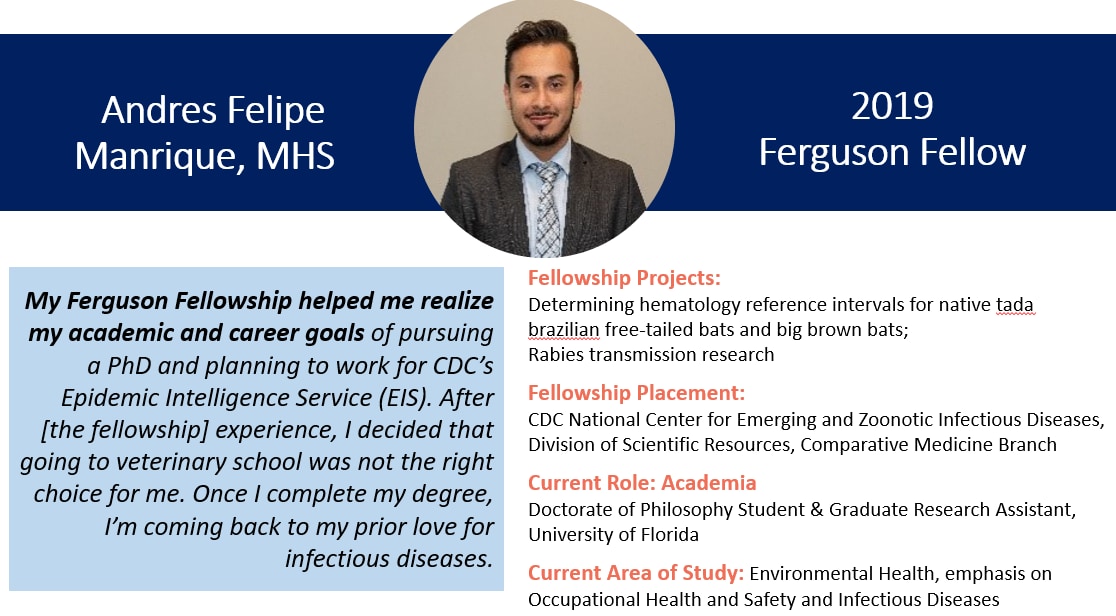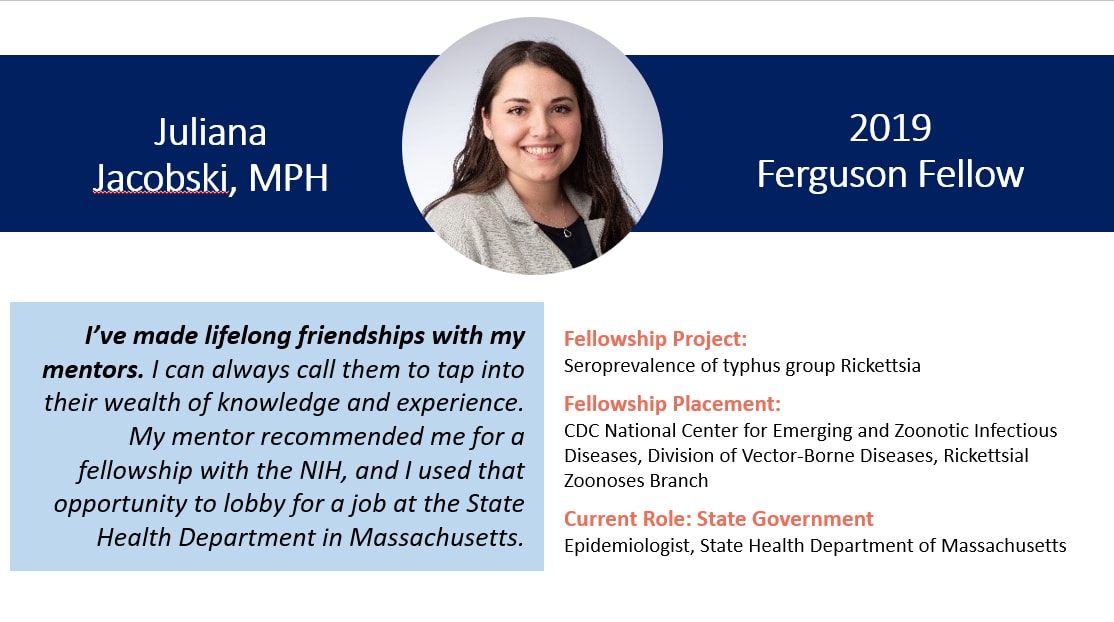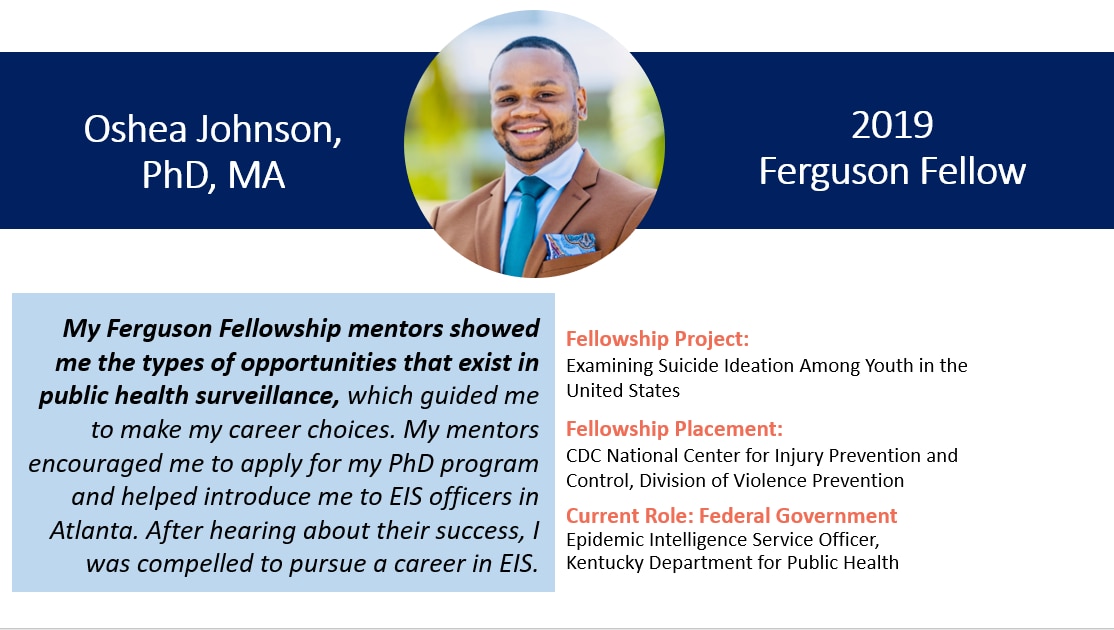At a glance
The Ferguson Fellowship provides research and professional development opportunities for graduate students and post-graduates to gain meaningful public health research experiences, focused on infectious diseases and health disparities.
History
Dr. James A. Ferguson, an alumnus of Tuskegee University School of Veterinary Medicine, believed that building a diverse public health workforce would effectively improve health equity for minorities and populations at risk for disease and health disparities. He was passionate about providing opportunities for underrepresented medical and veterinary students and encouraged students to explore public health career options in infectious disease research.
In 1989, Dr. Ferguson played an instrumental role in the establishment of the National Center for Infectious Diseases Summer Research Fellowship Program. Over the years, the program expanded to include additional schools and disciplines including pharmacy, dentistry, public health, and social sciences.
Dr. Ferguson's legacy continues 35 years later, through the Dr. James A. Ferguson Emerging Infectious Diseases Graduate Fellowship Program. CDC's Office of Health Equity (OHE) administers Dr. James A. Ferguson Emerging Infectious Diseases Fellowship with support from the Rapid Response Research and Surveillance Branch, Division of Infectious Disease Readiness and Innovation (DIDRI), National Center for Emerging and Zoonotic Infectious Diseases (NCEZID).
Research
Research areas include:
- Infectious Diseases
- Laboratory Science
- Epidemiology
- Health Equity
- Advanced Molecular Detection
- Wastewater Surveillance
- Emergency Preparedness
Fellow Eligibility
Summer Fellows: Must be enrolled as a full-time student in a medical, dental, pharmacy, veterinary, or public health program, or in a graduate program with interest in public health, health equity, infectious diseases, and biomedical sciences.
6-Month Fellows: Must be enrolled as a full-time student or a recent graduate of a medical, dental, pharmacy, or veterinary program, or in a graduate program with interest in public health, health equity, infectious diseases, and biomedical sciences.
12-Month Fellows: Must have completed a graduate level degree and be able to work full-time (40 hours per week). Fellow may be either a recent postgraduate (post-masters/postdoctoral) or enrolled in a doctoral program that permits full-time employment with interest in public health, health equity, infectious diseases, and biomedical sciences.
All fellows must have a 3.0 GPA or higher on a 4.0 scale and must be able to commit to the full length of the fellowship.
How to Apply for the Ferguson Fellowship
- Access fellowship resources at the Kennedy Krieger Institute website.
- Review the application guidelines & sample application.
- Determine which fellowship track(s) are of interest: summer, 6-month and/or 12-month.
- Complete the application by the due date, including at least two letters of reference.
Kennedy Krieger Institute website.
*Application cycle begins in October and ends in January
Apply to be a Mentor!
- Review the mentorship agreement to ensure that mentorship responsibilities are understood.
- Email FergusonFellowship@cdc.gov to express interest by the fellowship application due date.
- Identify research project(s), how many fellows you can host, and which track(s) are of interest (summer, 6- month, and/or 12-month).



